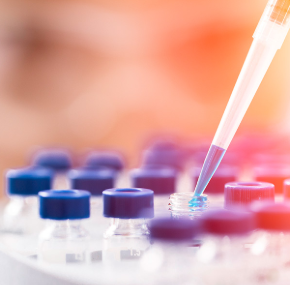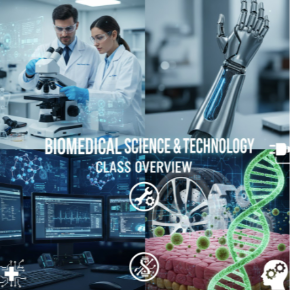Biomedical Science & Technology - Two Year Program
The Biomedical Science & Technology program is an advanced, hands-on pathway for students interested in biology, biotechnology, and health sciences. Over two years, students gain both academic knowledge and real-world lab experience while earning substantial college credit through Southern New Hampshire University (SNHU) and Great Bay Community College (GBCC).
Year 1
Biomedical Science & Technology Year 1 introduces students to the foundations of biology, biotechnology, and public health through hands-on experiments and real-world lab skills. Students will explore genetics, microbiology, and epidemiology while earning dual enrollment college credit through Southern New Hampshire University (SNHU).
Year 2
Year 2 of the Biomedical Science & Technology program builds on first-year knowledge with a deeper focus on molecular biology, DNA technology, and advanced biotechnology techniques. Students gain both academic and lab-based experience while earning additional college credits from Great Bay Community College and Southern New Hampshire University.
.jpg)


